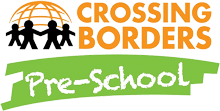These days, more and more attention is being paid to how different personality types learn language, particularly in regards to introverts versus extroverts. However, there are many misconceptions about both these personality types, and how their personalities influence their ability to learn languages. In this blog, we will go over the differences between introverts and extroverts, some common misconceptions about them, and what ways they thrive in language learning environments.
WHAT IS THE DIFFERENCE BETWEEN INTROVERTS AND EXTROVERTS?
Many people are misinformed about what it means to be introverted and extroverted. The perception is that introverted means “shy,” and that extroverted means “outgoing,” and that everyone is either one or the other. However, in reality, these personality types refer to where our energy comes from, not how outgoing or not we are, and most people are ambiverts, or people who have both introverted and extroverted tendencies. Introverts (and ambiverts with introverted tendencies) recharge with their alone time. Being around people drains their energy, and they need alone time to regroup. In contrast, extroverts (and those with extroverted tendencies) draw their energy from other people, so being social is very important to them, and they lose energy if they are alone for too long.
HOW DO I KNOW IF MY CHILD IS INTROVERTED OR EXTROVERTED?
Reading the above descriptions, you may recognize your child as either an introvert or an extrovert immediately, but because most people are ambiverts, it can be difficult to really know. To determine where your child falls on the spectrum, think about what activities they enjoy the most and how their mood changes depending on how many people are around. If your child enjoys more solitary activities such as reading or drawing, they may be introverted. You might also find that they get moody or embarrassed easily in public, and that they have a harder time expressing their feelings. In contrast, your extroverted child enjoys interacting with strangers, being in big crowds, and hates it when they have to be alone.
HOW DO PERSONALITY TYPES INFLUENCE LANGUAGE LEARNING?
There are a few misconceptions about how introverts and extroverts learn language differently. Some people believe that introverts are better at language learning because they will sit back and listen to absorb the language. Others believe that because extroverts are more inclined to speak to people, they are better at communication and therefore, learning a new language. In reality, both introverts and extroverts learn languages in different ways, and one way is not necessarily better than the other. Here are some ways that introverts and extroverts differ in the way they learn language.
Introverts Absorb Grammar
Introverts are more inclined to listening, and they tend to spend more time thinking about what they are going to say before speaking. Introverts are more likely to listen to every word that is spoken when learning a new language, and to pay more attention to grammatical rules. Introverts are more likely to absorb the grammar just by the nature of how they interact with people.
Extroverts Thrive Conversationally
Because extroverts thrive in social situations, they tend to practice their speaking skills much more than introverts do. Extroverts develop conversational skills quicker and enjoy a classroom setting more than introverts because there are many more people with whom to practice. Extroverts also have an easier time striking up conversations with strangers who are native speakers, which is extremely beneficial to learning a language.
Introverts Have Extensive Passive Vocabularies
As with grammar, introverts are more likely to absorb vocabulary faster than their extroverted peers. This is because of their great listening skills and attention to detail. They pick up words more readily because they are more likely to notice a word in a conversation that others brush over and to use context clues to discern its meaning. Therefore, introverts tend to have larger passive vocabularies, meaning words they can understand but don’t necessarily use in spoken language.
Extroverts Speak From Experience
One difference between the way extroverts and introverts learn language is how they use it. Extroverts are more likely to personalize their language, using their own experiences to make any speaking exercise into a social interaction. For example, when prompted to use the word “walk” in a sentence, an extrovert is most likely to say, “I walked to my friend’s house,” while an introvert would say “The man walked to the store.”
Introverts, extroverts, and everyone in between can learn a new language with the right instruction. At our preschool in Pearland, we offer language immersion, which has proven to be the most effective way to learn a second language. When you are ready to try our language immersion preschool, contact us.

